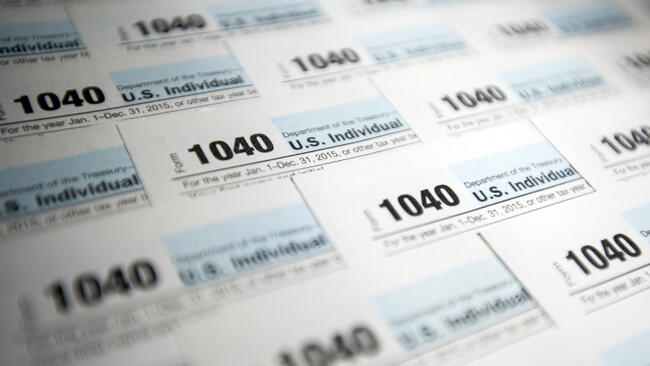Pay transparency laws are extending their reach. Here’s why
Pay transparency laws are extending their reach. Here’s why
Fifteen states have laws on pay disclosures, but some employers elsewhere are also adopting the practice.
Pay transparency laws are extending their reach. Here’s why
Fifteen states have laws on pay disclosures, but some employers elsewhere are also adopting the practice.


Listen
·Key takeaways:
- Pay visibility can help job seekers gauge offers and may reduce wage inequities
- Massachusetts law takes effect Oct. 29, joining 4 other states in 2025
- Companies with multi-state operations, remote workers are driving wider adoption
More states are requiring employers to disclose salary or wage-related information to job candidates, usually pay ranges. The laws are influencing hiring practices nationwide as employers standardize salary disclosures to attract talent and promote equitable pay.
Five more states are requiring employers to disclose pay information to job seekers in 2025, a continuing trend that’s making an impact across the country..1,2
Fifteen states have laws on the books requiring employers to disclose pay ranges for open positions — either in their job postings or during the hiring process. Laws in New Jersey, Illinois, Minnesota, and Vermont went into effect earlier in 2025 and Massachusetts will join those ranks on Oct. 29.3,4
In September, Delaware became the most recent state to enact pay transparency requirements for employers, but the measures won’t take effect until 2027.5
Pay transparency, in the context of state laws, refers to requirements for employers to disclose salary or wage-related information to job candidates, usually pay ranges. In some cases, the laws also apply to existing employees and internal job postings.6
At least six cities and one county have similar laws, including Jersey City, N.J.; Ithaca, N.Y.; Westchester County, N.Y, and New York City.7 Cleveland recently joined Toledo and Cincinnati among Ohio cities with mandates.8
Proponents say the aim is to make pay practices more visible, consistent, and equitable. Greater visibility into potential pay is seen as a tool to reduce wage gaps, especially among women and people of color.9
The level of disclosure depends on the law, with some jurisdictions requiring proactive disclosures by employers, while others mandate that pay information be furnished when requested.10
Other states that have laws include California, Colorado, Connecticut, Hawaii, Maryland, Nevada, New York, Rhode Island, Washington — as well as the District of Columbia.11
Read more: Where the job market is heading in 2025: 7 trends to anticipate
Pay transparency’s domino effect
Although jurisdiction is limited, the laws are having an impact in other parts of the country, especially among companies that hire a lot of remote workers or that operate in several states.12
States with pay transparency laws usually require that employers include pay ranges in postings for out-of-state remote jobs. It also works in the other direction; companies in states without pay mandates usually have to include salary information if they’re attracting remote candidates who live in states with the laws.13
Some employers simply find it easier to apply uniform pay transparency practices. Such an approach provides consistency to all job candidates or workers, regardless of geographic location. It also might ease compliance challenges in meeting so many different state standards.14
Employers not impacted in any way by transparency laws also might have reasons for including pay information in listings, especially in tight labor markets or for hard-to-fill positions.15 A 2023 study by Indeed found that job ads with clear salary ranges received 30% more applications and attracted higher-quality candidates.16
Read more: Accountants are in demand, well beyond tax season
Tool for learning pay potential
For job candidates and workers, the broad impact of pay transparency laws offers some clear benefits, such as helping people screen out roles early that might not meet their financial needs.17
A 2025 survey by job search platform Monster found that 44% of graduates would withdraw from the interview process if salary information wasn’t disclosed at that point.18 It’s part of a growing trend among younger workers wanting to talk about pay and other workplace priorities like flexibility and well-defined pathways to career growth.19
According to Empower research, 67% of employees tie earning more money to job satisfaction.
But even law proponents say pay transparency is more of a tool than a panacea.20 Pay ranges included in listings can be broad to account for an equally broad range of candidates with different levels of experience and skills. Broad salary ranges also might help employers protect themselves from a compliance standpoint.21
Salary ranges shared up front allow candidates to do more research and perhaps enter interviews and entertain job offers with more confidence and realistic expectations.22 It can be a valuable tool in the pursuit of workplace happiness.
Read more: Average salary by state
Get financially happy
Put your money to work for life and play
1 HR Brew, “Five states will begin enforcing pay transparency laws in 2025,” December 2024.
2 CNN, “More states now have pay transparency laws. Here’s the effect they’re having,” November 2024.
3 HR Dive, “A running list of states and localities that require employers to disclose pay or pay ranges," June 2025.
4 SHRM, “Massachusetts Pay Transparency Law Takes Effect in October,” September 2025.
5 SHRM, “Delaware: New Pay Transparency Requirements Take Effect in 2027,” October 2025.
6 National Law Review, “Navigating the Complexities of Pay Transparency Legislation,” January 2025.
7 HR Dive, “A running list of states and localities that require employers to disclose pay or pay ranges," June 2025.
8 Cleveland Plain Dealer, “Cleveland employers now required to include salary ranges in job postings or face fines,” April 2025.
9 Newsweek, “America's Companies Are Being Forced to Reveal Your Salary,” August 2024.
10 National Law Review, “Navigating the Complexities of Pay Transparency Legislation,” January 2025.
11 CNN, “More states now have pay transparency laws. Here’s the effect they’re having,” November 2024.
12 AP, “Pay Transparency Is Spreading, Even in US States That Don’t Require It,” March 2023.
13, CNN, “More states now have pay transparency laws. Here’s the effect they’re having,” November 2024.
14 AP, “Pay Transparency Is Spreading, Even in US States That Don’t Require It,” March 2023.
15 Federal Reserve Bank of Minneapolis, “Pay transparency in job postings: Trends, trade-offs, and policy design,” March 2024.
16 Indeed, “Pay Transparency: The 2023 Indeed Discussion Guide,” June 2023.
17 Federal Reserve Bank of Minneapolis, “Pay transparency in job postings: Trends, trade-offs, and policy design,” March 2024.
18 Monster, “2025 State of the Graduate Report,” accessed June 2025.
19 Fortune, “Nearly half of Gen Z grads admit they ghost employers who fail to mention this one thing in the interview,” March 2025.
20 Forbes, “Salary Transparency In 2025: Can It Help You Get A Pay Rise?” June 2025.
21 Bloomberg, “Netflix, Tesla Post Wide Salary Ranges Under New California Pay Law,” January 2023.
22 HR Dive, “Class of 2025 grads are experiencing disconnect between job expectations and reality, study finds,” April 2025.
RO4892047-1025
The content contained in this blog post is intended for general informational purposes only and is not meant to constitute legal, tax, accounting or investment advice. You should consult a qualified legal or tax professional regarding your specific situation. No part of this blog, nor the links contained therein is a solicitation or offer to sell securities. Compensation for freelance contributions not to exceed $1,250. Third-party data is obtained from sources believed to be reliable; however, Empower cannot guarantee the accuracy, timeliness, completeness or fitness of this data for any particular purpose. Third-party links are provided solely as a convenience and do not imply an affiliation, endorsement or approval by Empower of the contents on such third-party websites. This article is based on current events, research, and developments at the time of publication, which may change over time.
Certain sections of this blog may contain forward-looking statements that are based on our reasonable expectations, estimates, projections and assumptions. Past performance is not a guarantee of future return, nor is it indicative of future performance. Investing involves risk. The value of your investment will fluctuate and you may lose money.
Certified Financial Planner Board of Standards Inc. (CFP Board) owns the certification marks CFP®, CERTIFIED FINANCIAL PLANNER™, CFP® (with plaque design), and CFP® (with flame design) in the U.S., which it authorizes use of by individuals who successfully complete CFP Board's initial and ongoing certification requirements.





